IELTS Listening Multiple Choice: 5 Proven Steps to Master Questions & Score Higher
The IELTS certificate stands as a globally recognized English proficiency assessment, evaluating candidates across four essential language skills. Within the IELTS Listening section, test-takers encounter 40 questions spanning various formats. Among these, IELTS Listening Multiple Choice questions frequently challenge even well-prepared candidates. Understanding the unique characteristics of Multiple Choice questions and developing strategic approaches proves crucial for score optimization. This comprehensive guide examines these questions in detail and provides actionable strategies for success.
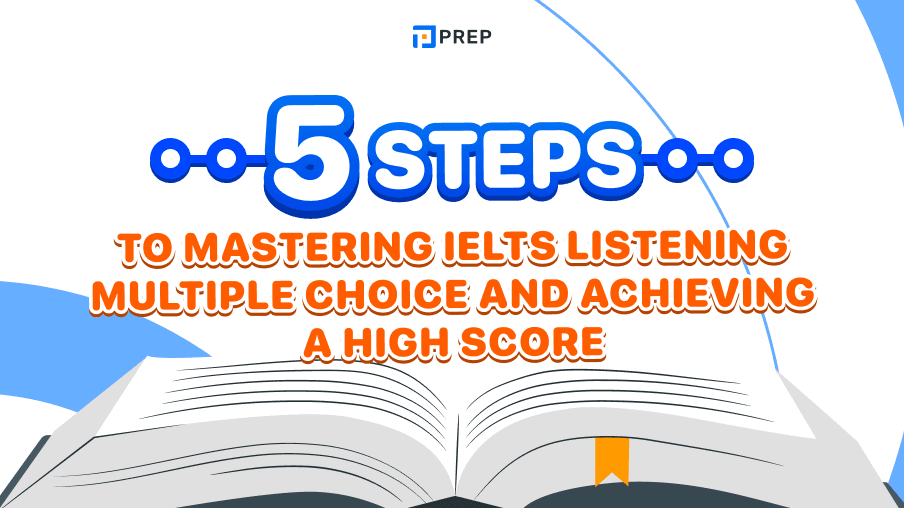
I. Overview of IELTS Listening Multiple Choice Questions
1. What is the IELTS Listening Multiple Choice?
Multiple Choice represents a fundamental question type within IELTS Listening assessments. Candidates must identify correct answers from predetermined options. The format includes two distinct variations:
-
Single questions: Feature three answer options (A, B, or C), with occasional instances presenting four choices. Each question requires one correct selection.
-
List questions: Present extended answer lists requiring multiple selections according to specific question instructions. These questions demand greater attention to detail and comprehensive listening skills.
2. Format of the IELTS Listening Multiple Choice
The first set of questions, 11 & 12, and 13 & 14 - these are list questions. You must choose two answers from options A - E for each question pair.
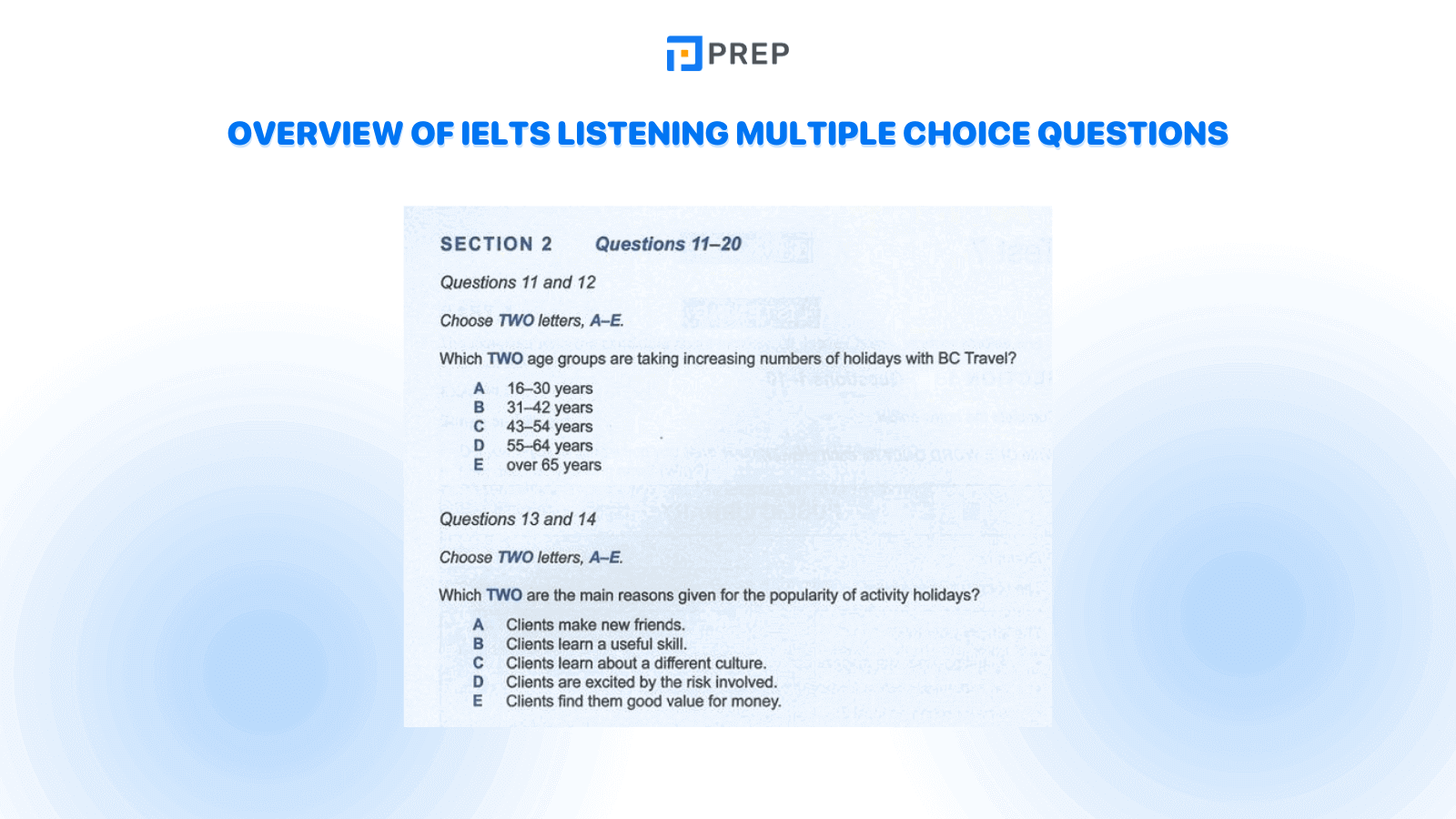
The second set of questions, 15, 16, and 17 - these are single questions, also known as Single questions, with three options to choose from. You must select one answer for each option A, B, or C.
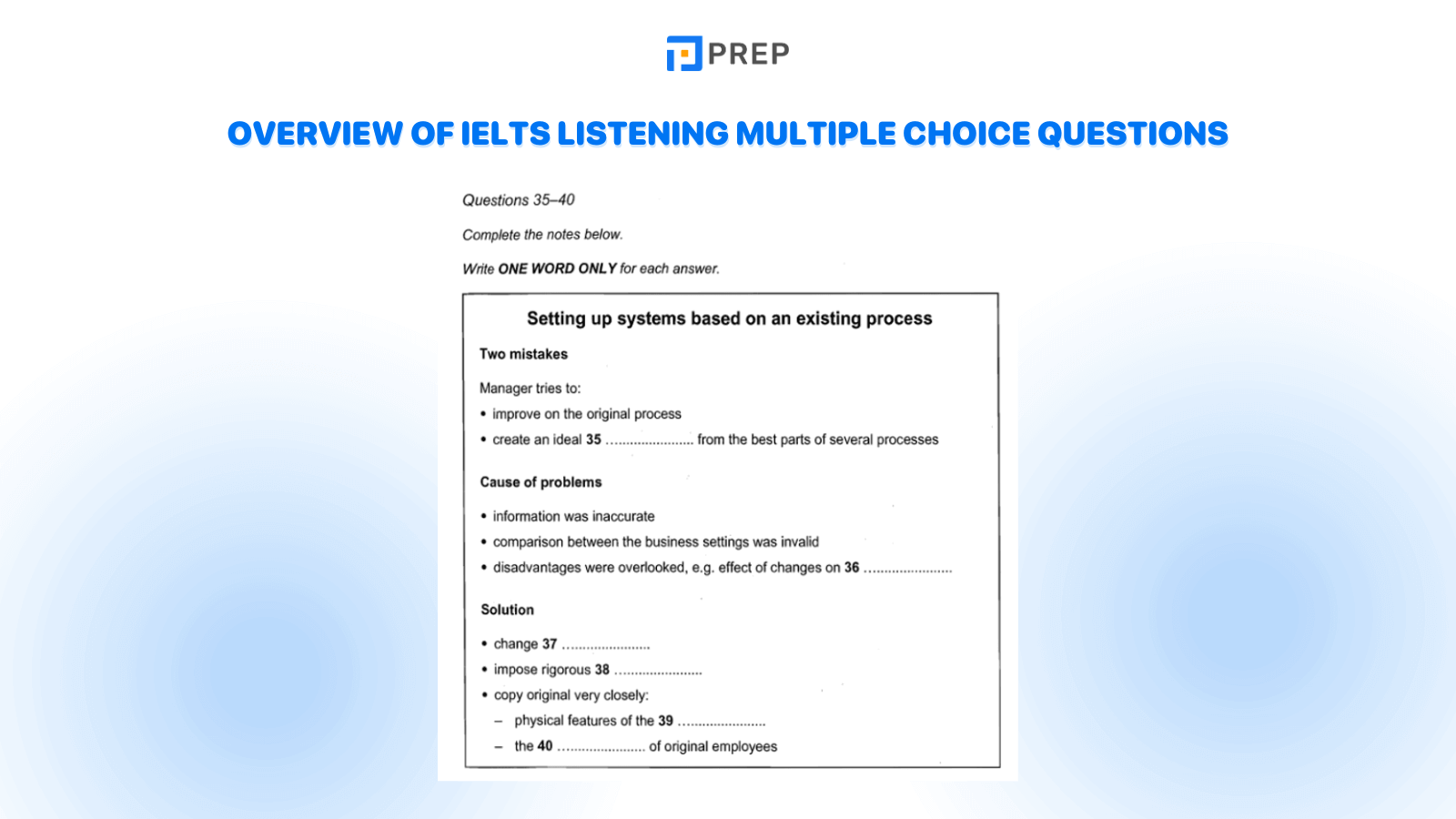
3. Frequency and Distribution Across Test Sections
Multiple Choice questions appear most commonly in Parts 2 and 3 of the IELTS Listening test. Part 2 typically features 3-5 Multiple Choice questions, while Part 3 may include 4-6 questions of this type. Understanding this distribution helps candidates allocate preparation time effectively and develop section-specific strategies.
II. Steps to Handle IELTS Listening Multiple Choice
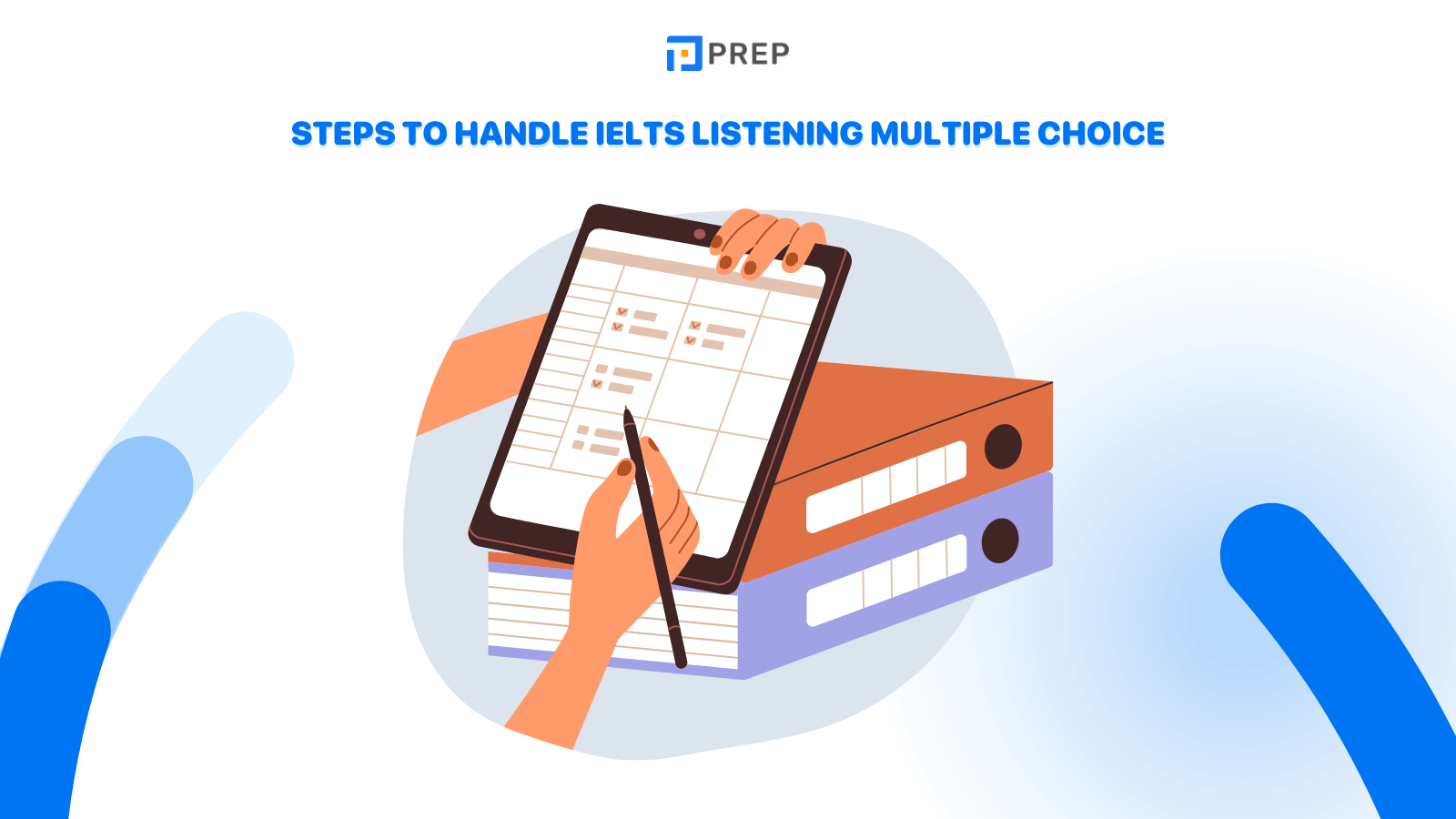
1. Before listening
- Step 1: Read the questions and answers: In Part 2 of the listening section, there is usually only one speaker and the traps are already listed in the answer choices. We need to identify which information is correct and which information is meant to confuse.
- Step 2: Underline keywords: Underlining keywords helps us clearly understand what the recording is referring to. Pay attention to keywords that differentiate between the answer choices. A specific explanation of this issue will be provided in the actual section.
- Step 3: Predict information about paraphrases: Predict specific information about the paraphrases of keywords to listen more actively.
2. While listening
- Step 4: Listen, move the cursor/mouse to the mentioned answer, and take direct notes: Listen, move the cursor/mouse to the mentioned answer, and take direct notes next to it because there is only one speaker, so there will be distractors among the answer choices. Note: The answers may not follow the order of information in the recording.
- Step 5: Select an answer + Do not leave the answer sheet blank.
III. Some traps in IELTS Listening Multiple Choice
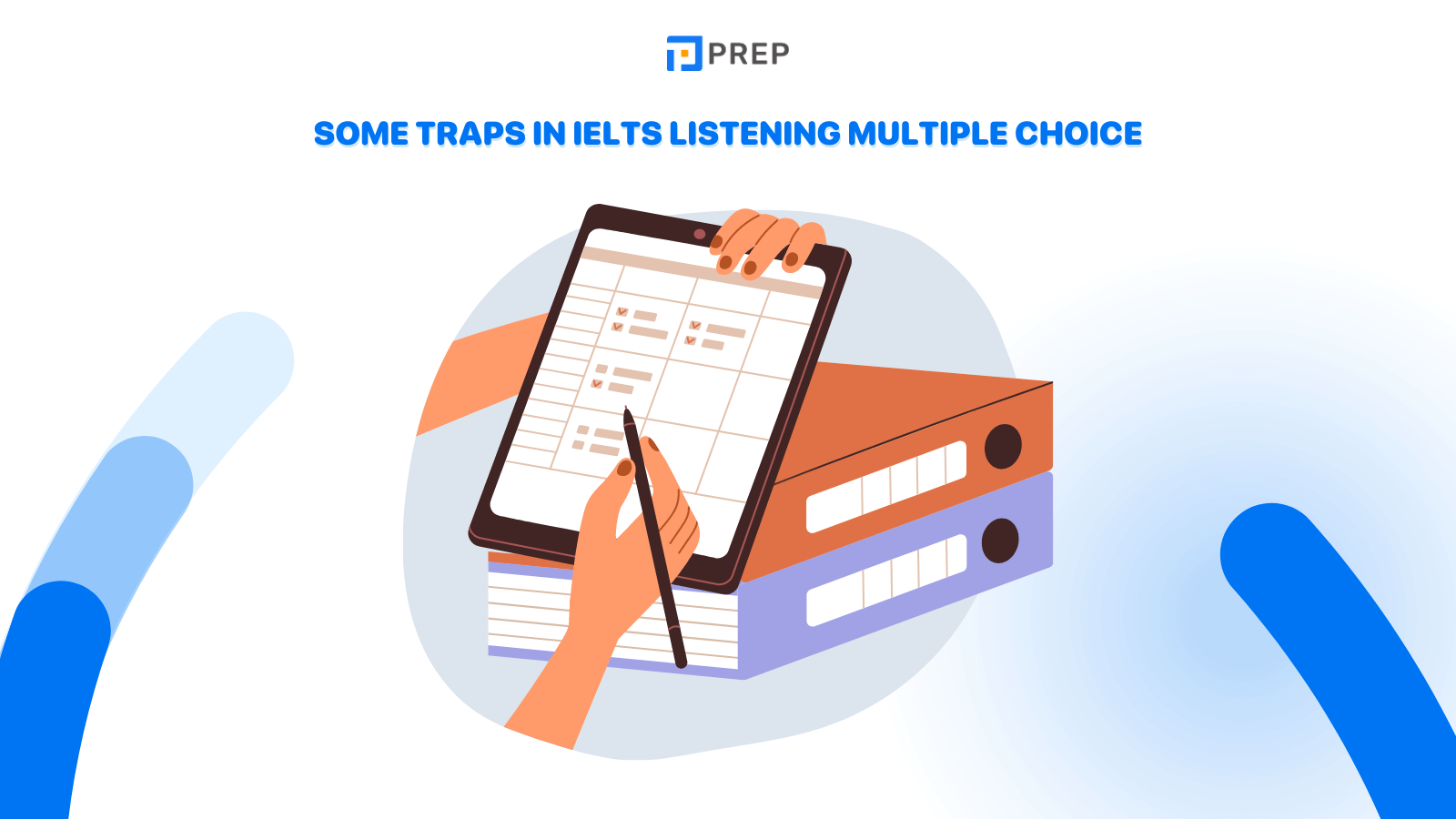
Multiple Choice questions contain the highest concentration of deliberate traps among IELTS Listening formats. Awareness of these common pitfalls enhances performance significantly:
-
Misleading information within answer choices requires exceptional listening precision. Speakers may present information that initially suggests one answer before revealing contradictory details. Maintaining focus throughout entire explanations prevents premature conclusions.
-
Non-sequential answer presentation challenges traditional expectations. Answers A, B, and C may appear in different orders within the recording. When recognizing potential answers, mark them immediately rather than waiting for sequential confirmation.
Practical Trap Example Analysis
Question: "Which benefit of exercise does Debbie consider most important?"
A. It helps you sleep.
B. It keeps your heart healthy.
C. It improves mental skills.
-
Trap 1 Analysis: "Being generally active proves much healthier than exercising intensively but occasionally. This approach can actually risk your heart as much as remaining inactive." This statement suggests heart-related risks from improper exercise, making answer B incorrect despite containing the keyword "heart."
-
Trap 2 Analysis: "Completing at least one hour of daily exercise—and many achieve more through work activities—prevents nighttime worry about tomorrow's challenges. This represents exercise's primary advantage." The phrase "primary advantage" paraphrases "most important benefit," but successful candidates must connect this conclusion to the preceding sleep-related information.
Conquering IELTS Listening Multiple Choice questions demands thorough understanding of question characteristics combined with systematic strategic application. Success requires recognizing trap patterns, developing active listening skills, and maintaining composure under test conditions.
Effective preparation involves regular practice with authentic materials, analyzing mistake patterns, and refining prediction abilities. Candidates who master these techniques consistently achieve their target band scores while building confidence for test day performance.

Hi I'm Chloe, and I am currently serving as an Product Content Administrator at Prep Education. With over five years of experience in independent online IELTS study and exam preparation, I am confident in my ability to support learners in achieving their highest possible scores.
Comment
Premium content
View allPersonalized roadmap
Most read












